Behind the News
Behind the News: All the backstories to our major news this week
Published
5 months agoon
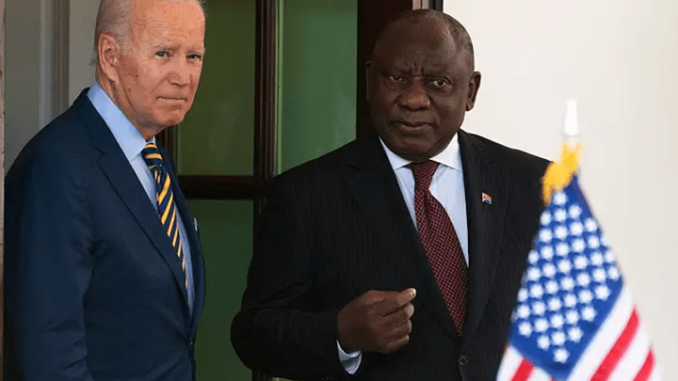
Over the past week, there were many important stories from around the African continent, and we served you some of the most topical ones.
Here is a rundown of the backstories to some of the biggest news stories in Africa that we covered during the week:
Inside the controversy over Ghana’s anti-LGBT legislation
Reactions have continued to trail Ghana’s recent anti-LGBTQ bill, with the finance ministry warning on Wednesday that it may cause the country to lose $3.8 billion in World Bank financing over the next five to six years if it becomes law which lawmakers overwhelmingly approved legislation last week that will further up the crackdown on the rights of LGBTQ individuals and anyone suspected of promoting LGBTQ rights.
The positions of African countries against the LGBTQ community have always been a subject of division, particularly against Western powers and some of their agencies, while the European Union’s decision not to cut funding to Uganda over a harsh anti-LGBTQ law was criticised by gay rights activists. In 2023, Uganda had its fair share of pressure, with the World Bank insisting that the East African country’s “Anti-Homosexuality Act fundamentally contradicts the World Bank Group’s values. We believe our vision to eradicate poverty on a livable planet can only succeed if it includes everyone, irrespective of race, gender, or sexuality.”
Ghana’s is the latest African country to go in the direction of anti-LGBT law, sponsored by a coalition of religious and traditional leaders and favoured most lawmakers, and it appears the “latest is the harshest.” Those who engage in LGBTQ sexual acts might be imprisoned for a maximum of three years or six months under the terms of the bill. Additionally, “willful promotion, sponsorship, or support of LGBTQ+ activities” carries a three-to five-year prison penalty under the measure.
The bill also stipulates that every Ghanaian now has a duty to ‘promote and protect’ heterosexuality; every parent, guardian, religious teacher, school teacher, traditional leader, imam and pastor must all start promoting heterosexuality; media and creative artists—musicians, actors, dancers, performers, etc.—must all teach and make ‘conscious effort’ to promote heterosexuality. The bill also provides that a foreigner who has entered into, has administered or witnessed a same-sex marriage (that is legal in your own country) is automatically a criminal in Ghana and can go to jail for up to three years, amongst other provisions.
Many arguments against the proposed law that is yet to be assented by President Nana Akufo-Ado stretch from the burden of non-allegiance placed on a likely “innocent public,” as it makes heavy stands against being indifferent or passive against same-sex practice in the West African country. Analysts say non-LGBTQ Ghanaians are more likely to be caught in the web of the law than actual gay people if assented, thus raising critical rights concerns.
The proposed law is a test of the socio-cultural history of the country. Being the most culturally liberal in the West African subregion, being home to many asylum seekers and political fugitives, and its largest tribe, the Ashanti, being of matriarchal tradition but with much homosexuality, can it accommodate?
US isn’t giving up on South Africa
The United States Deputy Treasury Secretary, Wally Adeyemo, who is of Nigerian descent, will travel to South Africa (SA) next week. Adeyemo’s tour will cover topics such as US sanctions, work against wildlife trafficking, investments in young leaders and entrepreneurs, sustainable energy transition, and illicit finance.
The proposed visit is in the spotlight for international observers as there have been recent strains in relations between the countries. Unsurprisingly, South Africa’s relations with European giants and US ideological rival Russia have continued to blossom. Last year, United States ambassador Reuben Brigety accused SA of providing ammunition to Russia through ships, contrary to its public claim of being non-aligned in the Russia/Ukraine crisis.
“Among the things we noted was the docking of the cargo ship in the Simon’s Town naval base between December 6 and 8, 2022, of which we are confident we uploaded weapons and ammunition onto that vessel as it made its way back to Russia,” said the US ambassador.
The US and its allies have imposed a plethora of sanctions on Russia following its invasion of Ukraine, aimed at the nation’s banking industry, military industrial base, and Russian President Vladimir Putin, but Johannesburg remains a close ally, has almost hosted Putin and threatened to ignore the ICC’s ruling against the Russian president if he had visited.
South Africa has maintained an international ideological stance that opposes the US on global turf; more recent is its stand against US ally Israel’s engagement in the ongoing Hamas war by dragging it to the International Court of Justice (ICJ) and asking the World Court to issue a non-binding legal opinion that the Israeli occupation of Palestinian territories is illegal.
Despite its stance, it remains an irresistible toast to Washington, which is desperate to restore its dwindling influence in Africa, with many on the continent now favouring US global rivals, China for economic and trade partnerships, and Russia for military relations. Being Africa’s most industrilized economy, South Africa is core to whatever the US hopes to achieve in its last quest to “return” to Africa.
Zambia’s new maize policy and musings on intra-continental trade
On Saturday, the Zambian government made it illegal to export feeds made with maize ingredients until it conducted an audit of the country’s maize harvest to determine the full extent of the damage caused by the continuing drought. Zambia’s latest maize policy raises questions about the age-long discussion on regional integration and trade relations on the continent.
The position might affect food supply as Zambia is the largest net supplier of maize in the world. It exported almost 1.1 MMT of corn in MY 2022/23 on record carry-over stocks of 1.5 MMT and higher demand from East Africa and neighbouring countries, and production of its staple crop, corn, is expected to grow by 23 percent to 3.3 million metric tonnes (MMT) in marketing year (MY) 2023/24, mainly due to an upsurge in planted area.
In a similar fashion, the Government of the Republic of Tanzania has officially communicated to the Zambian government its availability to export maize to Zambia. Nigeria, which is the food basket for the West African subregion, has also adopted similar anti-food export policies amidst its growing food crises.
Despite having the largest free-trade in the world in terms of the number of participating countries since the formation of the World Trade Organisation following the formation of the African Continental Free Trade Area (AfCFTA) which was a free trade area in 2018, “self-preservation” remains the biggest relational factor for many Africans with strict protectionist policies, which although affect formal intra-continental trade, only to become the lifeblood of smuggling.
Africa’s GDP and its internal trade expanded fourfold over the past two decades, according to the report, which suggests that intra-African trade is more resilient than exchanges with other regions of the world, Africa’s trade and regional integration face several obstacles. Transportation and communication infrastructure for intra-African trade are less developed than those that connect Africa to the rest of the world.
Ahead of the first election in the world’s youngest country
South Sudan, the world’s youngest independent state, is one of 19 African countries expected to hold elections this year, and there have been warnings from a senior US State Department official quoted by Reuters that unless immediate action is taken, the planned December elections are not likely to be a credible process due to the government’s delayed preparations.
“I give it 50/50” about the possibility that the elections in December would go as scheduled…If there’s either a delay or violence, I think we would look at the whole suite of options, including sanctions,” the official said.
Since its descent into civil conflict in 2013, South Sudan has experienced severe instability due to a long-standing political rivalry between First Vice President Riak Machar and President Kiir. This rivalry has strong ethnic overtones, as both leaders have successfully rallied support from the country’s two largest ethnic bases, the Nuer and the Dinka.
President Salva Kiir of South Sudan has built a career out of stalling elections, which has allowed him to hold the office de facto since 2005 despite only being qualified for a single four-year term after the country’s 2011 independence vote. He has since managed extensions in 2020, 2022, 2015, and 2018.
Kiir’s announcement to be a candidate in the election is profound, as the continent already boasts of some of the world’s longest-serving leaders with decades at the seat of power in countries like Equatorial Guinea, Cameroon, Uganda, and Rwanda. Thus, it seems that the biggest obstacle to South Sudan’s holding legitimate elections is a lack of political will to both hold credible elections and establish independent oversight agencies.
You may like
-


SA mobility startup LULA acquires UK-based Zeelo’s operations
-
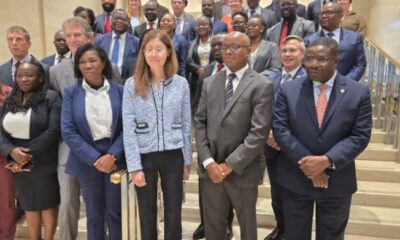

MCC grants Zambia $458m compact deal to boost agro-business
-


At Project Aliyense discourse, panelists call for balance between free speech, ethical considerations
-
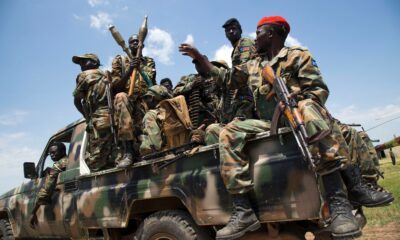

RSF to join as US invites Sudan’s warring parties for talks
-
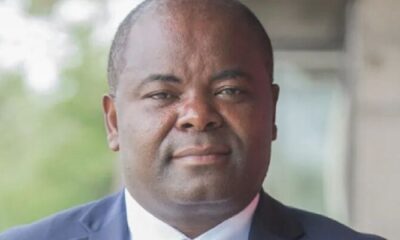

Zambia: PF lawmaker Chitotela sentenced to 10 years in prison
-
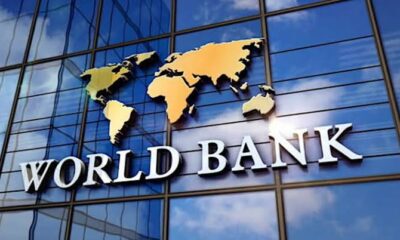

World Bank pledges $30m to support refugees, host communities in Zambia
Behind the News
Behind the News: All the backstories to our major news this week
Published
5 days agoon
July 21, 2024
Over the past week, there were lots of important stories from around the African continent, and we served you some of the most topical ones.
Here is a rundown of the backstories to some of the biggest news in Africa that we covered during the week:
1. Karma strikes as Nigerian govt gets jittery over looming nationwide strike
The Nigerian Presidency has been all over the place issuing warnings against a planned nationwide protest scheduled to commence on August 1st.
The Presidency which issued the warning vis a statement by Special Adviser to President Bola Tinubu on Information and Strategy, Bayo Onanuga, said the protest tagged “EndBadGovernment” organised by concerned citizens, said it could degenerate into anarchy.
The Presidential spokesman went on to accuse opposition politicians like Peter Obi, Omoleye Sowore, Pat Utomi and supporters of Obi known as Obidients as being behind the planned protests.
“Peter Obi, FS Yusuf, another rabid Obi supporter, and Professor Pat Utomi, a Labour Party chieftain and a guy on X who goes by the pseudonym Peter Obi’s First Son” are behind the planned protests,” Onanuga had alleged.
Onanuga who acknowledged that it is the right of people to protest in a democracy, he however cautioned those behind it to should be careful so that it will not be hijacked by people who would use the opportunity to cause problems.
“My post is just to highlight that the people who are organizing this so-called nationwide protest are members of Labour party, they are Peter Obi supporters, so that’s my own take of it, it’s my own opinion so I am not going to say more than this,” he said.
But beyond running from pillar to post issuing warnings and accusing others of planning to destabilize Tinubu’s administration, Nigerian are quick to remind Onanuga and the Presidency that the hen has come home to roost.
In the tumultuous years of the Peoples Democratic Party’s regime, the likes of Onanuga, Tinubu, Buhari and other leaders of the All Progressives Congress which was in the opposition used protests to discredit the PDP at every given opportunity.
They were always quick to mobilize Nigerians to hit the streets and protest against the government all in a bid to take over power.
It is then a thing of surprise that they should be so vehemently opposed to protests when it was on the back of such actions that they rode into power.
Now Karma has come around in full circle, and it is left to be seen if the ruling party can stop Nigerians from expressing themselves and exercising their democratic rights.
2. Cunning Tinubu prevails over labour leaders on minimum wage
Nigerian President Bola Tinubu showed his masterful cunning ways when he practically coerced labour leaders to accept a paltry N70,000 (about $43) as the new national minimum wage after months of lingering negotiations between government and organised labour.
The agreement which was reached on Thursday, according to the President of the Nigerian Labour Congress, Joe Ajaero, was more of an intimidation and coercion rather than a mutually agreed decision.
The N70,000, up from the previous N30,000, was approved by Tinubu after months of back and forth with labour which included strike actions and several threats of nationwide protests and economic shutdown.
His Special Adviser on Information and Strategy, Bayo Onanuga, who announced the agreement, said the President was magnanimous enough to approve the new minimum wage which is a far cry from labours’ demands of N250,000.
In an interview with journalists, Ajaero revealed that the labour leaders were forced to settle for the amount after Tinubu had threatened to increase fuel price if labour insisted on their N250,000 demand.
Those who know President Tinubu at close range are quick to point out that he has a way of using the carrot and stick approach to solve knotty issues and is wont to play dirty whenever he is in a right position.
It is then glaring that he also applied the same tactics when he threatened the labour leaders with a fuel price hike if the failed to accept his N70,000 minimum wage proposal.
And once again, he came out tops!
3. Sudan devastated by unending war as over 10m people displaced
The unending war in Sudan has led to the displacement of more than 10 million people, about 20 per cent of the country’s population, according to the International Organization for Migration (IOM).
The situation, according to the UN agency, has forced the affected people out of their homes since the conflict which is seen as one of the world’s worst displacement crisis.
The IOM, in a statement during the week, said the Sudanese crisis is the most recent alarming estimate from the nation in East Africa, which has been destroyed by fighting that started in April 2023, which has led to a majority of the 50 million people in the country in need of humanitarian help while half of them are experiencing starvation as a result of the war.
The Sudanese war which broke out last year When fighting broke out between the army and the paramilitary Rapid Support Forces (RSF) in the capital city of Khartoum, has spread to the west throughout Darfur, with the RSF seizing control of most of the major cities.
“Since the start of the conflict, over 2.2 million people have fled to foreign nations and about 7.8 million have sought safety within the nation. Previous conflicts in the country have already resulted in the displacement of an additional 2.8 million people,” a bimonthly report from the IOM stated.
The situation in Sudan, though pathetic and avoidable, has once again highlighted the precarious state of African nations and its people whenever power mongering leaders decide to take on each other which is always to the detriment of the masses.
The Sudan war, like others in Africa, has led to mass killings of citizens as well as the destruction of public properties.
And in such wars and conflicts, one is forced to ask what the warring factions really want aside control of power and resources. So why kill the innocent citizens in the process?
4. More confusion as Zambian MPs walk out of parliament during proceedings
The political crisis rocking Zambia took another turn during the week when opposition Members of Parliament from the Patriotic Front and allied members staged a walkout during proceedings.
The aggrieved MPs decided to take the option citing inadequate debate time allocated by Deputy Parliamentary Speaker, Atractor Chisangano.
The dispute was ignited when Chisangano allegedly failed to grant sufficient time for discussing corruption allegations implicating senior government officials which the MPs felt was an attempt to shield indicted government officials.
MP Brian Mundubile, who led the walkout expressed frustration, emphasizing that crucial issues like corruption deserved more attention.
“The Speaker was expected to allocate at least an hour to debate these unprecedented corruption allegations against high-ranking officials. It’s unacceptable that such serious matters are sidelined,” Mundubile lamented.
He highlighted the concerns of the opposition MPs over a reported theft of medical kits and medicines, while calling for accountability and swift action against implicated government figures.
“Ministers and senior officials facing serious allegations should either be dismissed, resign, or face legal consequences.
“Theft of medical kits and medicines should not go unpunished. It’s imperative that those implicated in are held accountable through appropriate legal measures,” Mundubile said.
The celebrated ‘Medicine Gate’ currently rocking the country’s health sector has seen several key government officials accused of stealing medical equipment and kits meant for government hospitals but according to opposition figures, the culprits, some of whom are believed to be high ranking members of the ruling United Party for National Development (UPND) administration, are being protected instead of being prosecuted.
The walkout was also a show of displeasure by the lawmakers who felt the Speaker deliberately stunted their debate by allocating limited time for the scandal to be addressed.
5. Ghanaian actor stokes controversy with assertion that Jesus never performed miracles
In a continent where religion is seen as the opium of the people, veteran Ghanaian actor, Majid Michel, has raised a storm with many say is heresy following his comments that Jesus Christ did not perform miracles such as raising the dead or healing the sick during his earthly ministry.
The actor who is now a preacher of the gospel, stoked the embers of fire when he told a congregation during a sermo about Christianity that said contrary to widely held beliefs, Jesus Christ neither personally healed any sick person nor raised the dead, despite these acts being credited to him in biblical teachings.
“Do you know Jesus never healed the sick nor raised the dead? Jesus never let the blind see.
“Do you know what Jesus said? ‘I do nothing by myself. As I see the Father do, I do.’ In other words, I am Jesus, I have a will, but I will not use my will; only the will of my Father I came to do,” he said.
“If the devil had gotten Jesus to turn that stone to bread without asking his Father’s permission, he had gotten him to sin and that is what you call sin—separation from God, independence from God,” the award winning actor added.
Michel’s controversial sermon has continued to divide opinions from adherents of the Christian religion but typically, especially from Africans who have come to believe everything they read in religious books and sees any contrary opinion as an affront to their beliefs.
As offhand as Michel’s assertion may seem, it is also imperative to interrogate his claims especially when one considers another angle he put up in his argument.
“When you throw your own plans and make your own decisions without consulting the Father, you have sinned,” he had also stated.y
Behind the News
Behind the News: All the backstories to our major news this week
Published
3 weeks agoon
July 7, 2024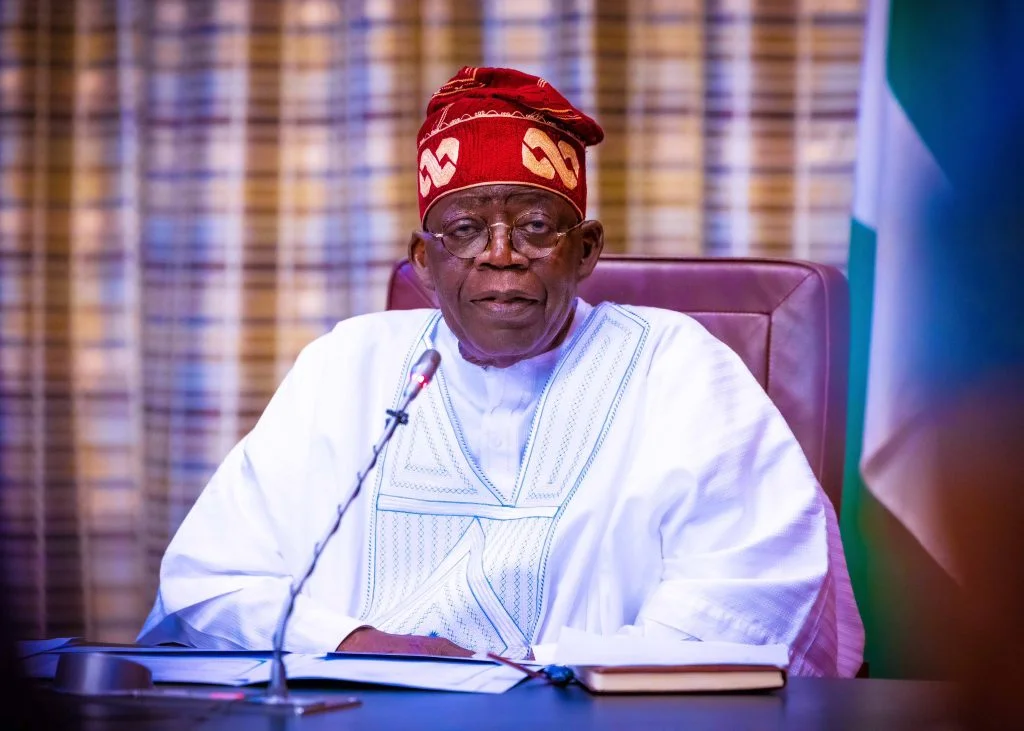
Over the past week, there were lots of important stories from around the African continent, and we served you some of the most topical ones.
Here is a rundown of the backstories to some of the biggest news in Africa that we covered during the week:
1. Audacity of pride as APC boasts Nigerians will still re-elect Tinubu despite hunger, hardship
Despite the hues and cries of ordinary Nigerians over the unbearable hardship, hunger, insecurity, and pervasive poverty as a result of the now infamous “bold reforms” and unfavourable economic policies of President Bola Tinubu since coming into office over a year ago, the ruling All Progressives Congress (APC), has boasted that Nigerians will still re-elect him as president come 2027.
The Deputy National Organising Secretary of the party, Nze Chidi Duru, who made the boast in an interaction with journalists in Lagos, said he was convinced beyond doubt that come 2027, Tinubu would be re-elected despite the economic hardship and planned alliance between mega opposition parties.
Duru, who was reacting to insinuations that the current hardship and economic woes arising from Tinubu’s policies could lead to Nigerians voting against him, said the ruling party was not losing sleep because he was sure Nigerians would still vote for the president.
“Our party has always recognised the fact that the current challenging economic environment has not in any way got better.
“When Mr President took over, he asked Nigerians not to pity him. It is an office that he craved and worked hard for before offering himself to provide leadership to Nigeria.
“What gives confidence is that Mr President is very much aware of the expectations of the person on the street.
“Concerning whether we will be re-elected, as a democrat and my personal view, we have always canvassed that unless His Excellency President Bola Tinubu will not contest, the APC government is bound to be represented by our candidate in 2027 to fly the flag for the simple reason that I want to bring up. And, of course, there is the incumbency factor,” Duru boasted.
Beyond the cockiness and confidence of the APC spokesman, who is invariably speaking the minds of the ruling class, what this means is that no matter how they have emasculated Nigerians and throw them under the bus, they will still be re-elected come the next election cycle in 2027.
They have the power of incumbency, the chairman of the Electoral Commission is appointed by the ruling party, they have the machinery and the funds to buy voters and in the case of an election dispute going to court, they have their appointed judges to give verdicts in their favour.
Little wonder Duru, like others before him, has the effrontery to boast that Nigerians will still re-elect Tinubu despite what they are being made to go through.
And he is not far from the truth because most of the suffering Nigerians will still sell their consciences for pittance in future elections.
2. ‘You are killing Zambian democracy,’ Lungu attacks Hichilema again
The war of words and verbal attacks between former Zambian President Edgar Lungu and incumbent President Hakainde Hichilema has continued unabated following a new allegation from the Lungu camp that Hichilema is attacking the country’s democratic norms by using the parliament to strangle the opposition.
Lungu made the allegations after nine members of his party, the Patriotic Front (PF), were sacked from the parliament.
In a press conference in Lusaka, Lungu said his party would vigorously contest the expulsions of the MPs through legal and political means.
He also accused the current government of misusing the Speaker’s office to target perceived opponents of the ruling party, calling it an abuse of power.
“During my tenure, we never interfered with the workings of the National Assembly. My government respected national principles and the separation of powers,” Lungu said.
He also warned that if Zambia fails to oppose the unconstitutional expulsion of lawmakers, it would signal a dangerous attack on democracy, adding that the Hichilema administration is displaying dictatorial powers, contrast with his administration’s practices since 2015 when he took office.
“Sadly, the respect for power and democratic principles that we upheld has been undermined under the current government. Since Mr. Hakainde Hichilema assumed power, we have witnessed a decline in governance integrity,” Lungu lamented.
The political fight between Lungu and Hichilema is not new especially in Africa where politicians see themselves as sworn enemies.
Those who are not in office see all the mistakes made by those in power while those on the inside will do everything possible to stop their opponents from upsetting them in future elections.
Since Hichilema took over from Lungu, the former president has been on the warpath, picking on him and attacking the President at every point, oblivious of the fact that he was duly voted out by the citizens who felt he had not performed to their expectations.
But then, this is the way of a typical African politician and the roulette dance of shame goes on!
3. End of an era as US completes troops withdrawal from Niger’s Air Base
After several years of having its troops stationed in Niger Republic and other West African countries, the United States announced that it would finally withdraw its troops from the Nigerien Air Base on Sunday.
The Nigerien military junta had given the United States until September 15th to withdraw its forces.
In a statement on Friday, US officials said the military will finish removing its soldiers from Niger’s Air Base 101 in the capital on Sunday and will next concentrate on leaving a significant drone base in the upcoming weeks.
The withdrawal of the US troops also comes with a withdrawal from a $100 million drone base close to Agadez in central Niger, which had supplied vital intelligence regarding organizations associated with the Islamic State and al Qaeda.
US Air Force Major General Kenneth Ekman, who was in Niger to oversee the withdrawal, had announced that a ceremony will take place on Sunday night to officially close Air Base 101 for the United States.
“We will do a joint ceremony on that occasion that marks the departure of the last U.S. C-17 (aircraft). The government of Niger will assume control of former U.S. areas and facilities,” Ekman said.
The idea behind the withdrawal of the US troops from the West African country came following a spate of coups that rocked the region in the past five years, the latest being that of Niger last year which saw the junta leaders ordering the United States to remove its almost 1,000 soldiers from the country in April.
The order and the subsequent protest by citizens caused the US serious embarrassment leading to the decision to withdraw its troops.
The withdrawal of US troops is also coming on the heels of similar withdrawals by Russia troops from Mali and Burkina Faso following military coups in the countries.
4. 82 million Nigerians face bleak times as food crisis escalates
An estimated 82 million Nigerians, about 64% of the nation’s population, face a bleak future and may go hungry by the year 2030 as a result of acute food crisis which is likely to hit the country in the next few years.
This damning prediction was given by the United Nations which also urged the Nigerian government to immediately address climate change, pest infestations, and other risks to agricultural productivity.
The Food and Agriculture Organization’s resident humanitarian coordinator, Taofiq Braimoh, a UN representative, who made the prediction at the CropWatch Abuja launch during the week had stated:
“The government of Nigeria, in collaboration with others, conducts an annual food security survey.
“The results this year are concerning: over 80–82 million Nigerians are at risk of severe food crisis by 2030, and about 22 million may experience food insecurity in 2023.
“Nigeria, like many countries, grapples with food insecurity, climate change, unreliable water patterns, pest infestations, and other threats to agricultural productivity.”
Realities on ground shows that this bleak forecast by the UN is as a result of sustained increase in the nation’s food costs where the cost of living has gone beyond the reach of ordinary Nigerians.
Food inflation rate surpassed the 40.53% mark, an increasing from the previous month to a new high of 40.66% in May 2024, according to the National Bureau of Statistics.
This is the highest of such inflation rate witnessed in over 20 years, with increasing insecurity where farmers have not been able to produce foods, and with the unfavourable economic policies of the present administration, the UN prediction may well come to reality if the ugly trend is not reversed on time.
5. New UK PM delights African migrants as he declares Rwanda migration deal ‘dead and buried’
The newly elected British Prime Minister, Keir Starmer, has got into the good books of African migrants quite early after he declared that the plans to repatriate asylum seekers from Britain to Rwanda is “dead and buried.”
In what turned out to be Starmer’s first significant foreign policy statement,
Starmer said he would abandon the audacious plan to transport thousands of illegal to the East African country by the previous administration of Rishi Sunak.
The new PM stated categorically that the Rwanda policy would be abandoned since it would not have served as a deterrence and that just 1% of asylum applicants would have been expelled.
“The Rwanda scheme was dead and buried before it started. It’s never been a deterrent,” Starmer said in the speech.
In the agreement which was estimated at around £120 million ($148 million), the British government, had disclosed last year that it intended to send thousands of migrants to the nation in East Africa to discourage asylum seekers from using tiny boats to cross the English Channel from France.
The plan was to return undocumented migrants to the Rwanda and was first announced by the Conservative government in 2022, with the stated goal of ending the influx of asylum seekers in small boats.
The deal had suffered significant setbacks with some members of parliament kicking against it and court cases delaying its smooth take off but Sunak had insisted on going through with it.
With the stance of the most powerful man in the UK, endangered African migrants who seek asylum in the country can be rest assured of some level of protection.
EDITOR’S PICK


Trevor Noah set for ‘Off the Record’ world tour
South African comedian and talk show host, Trevor Noah, has announced a date for his “Off The Record” global tour...


SA mobility startup LULA acquires UK-based Zeelo’s operations
South Africa’s mobility startup, LULA, has announced the acquisition of the operations of UK-based Zeelo in a move that will...


Ngannou accuses Joshua of employing dirty tactics in their fight in Saudi Arabia
Former UFC heavyweight champion, Francis Ngannou, has accused British-Nigerian boxer, Anthony Joshua, and his promotion team of employing unfair and...


#EndBadGovernance Protests: Please be patient with Tinubu’s govt, monarchs beg Nigerian youths
Some prominent traditional rulers in Nigeria have pleaded with Nigerian youths and organizers of the planned nationwide #EndBadGovernance protests scheduled...


UNESCO removes Senegal’s Niokolo-Koba National Park from list of World Heritage sites in danger
The United Nations’ Educational, Scientific and Cultural Organization (UNESCO) has removed Senegal’s Niokolo-Koba National Park from the list of World...


At Project Aliyense discourse, panelists call for balance between free speech, ethical considerations
The government has been urged to balance freedom of speech with ethical considerations and laws that prevent harm to others....


Adenia Partners acquires Air Liquide’s operations in 12 African countries
Adenia Partners, a leading private equity firm, has completed the acquisition of Air Liquide’s operations in 12 African countries, adopting...


We will handle planned nationwide protests as family matter— Nigerian Govt
The Nigerian government says it will handle the planned #EndBadGovernance protests scheduled to commence on August 1 as a family...


Veteran Nigerian entertainer Charly Boy vows to divorce wife if Kamala Harris doesn’t win US presidential election
Veteran Nigerian entertainer, Charles Oputa, popularly known as Charly Boy, has vowed to divorce his wife of 47 years if...


Saudi club Al Hilal places African transfer record bid for Osimhen
Saudi Arabia club side, Al-Hilal, have reportedly made an African transfer record bid for Super Eagles and Napoli striker, Victor...
Trending
-

 Sports1 day ago
Sports1 day agoMeet Nigerian-born players doing big things for Japan at Paris 2024 Olympics
-

 Metro2 days ago
Metro2 days agoWe will handle planned nationwide protests as family matter— Nigerian Govt
-

 Metro15 hours ago
Metro15 hours ago#EndBadGovernance Protests: Please be patient with Tinubu’s govt, monarchs beg Nigerian youths
-

 Tech2 days ago
Tech2 days agoAdenia Partners acquires Air Liquide’s operations in 12 African countries


